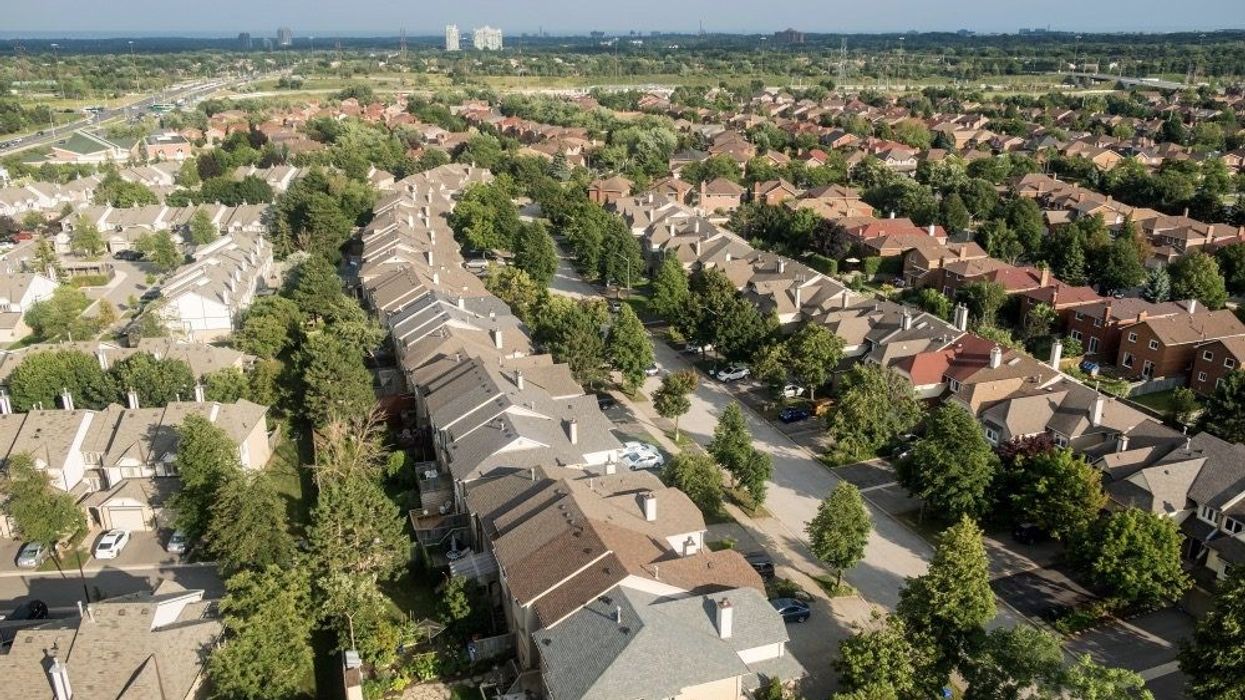Housing markets all across Canada are "in full-blown cooling mode" as home resales fall for the third month in a row, a new report from RBC Economics says.
The report, written by senior economist Robert Hogue, takes note of a chilling effect that was seen on home resale activity in May, with the number of sales falling 8.6% from April. The extremely tight supple and demand conditions that were seen throughout the majority of the pandemic are now "rebalancing quickly." Home resales across Canada dropped to 512,000 in May, marking the first time activity has slipped below pre-pandemic numbers since the summer of 2020 when real estate activity first picked up.
"The situation varies vastly across the country though," Hogue wrote. "Despite declining in May (and in several cases, April), activity remains strong -- and well above pre-pandemic levels -- in the Prairie and Atlantic Provinces. The Canada-wide softening entirely reflects trends in British Columbia, Ontario and Quebec where buyers are now clearly on the defensive."
This softening demand can be attributed in large part to rising Bank of Canada interest rates. As of June 1, three rate hikes had already been implemented, and more are expected to come throughout the rest of the year. The heightened rates won't be felt equally, though, with those buying in the country's more expensive markets feeling the financial strains most.
"We expect bearish sentiment to build and spread further as the Bank of Canada forges ahead with a ‘forceful’ monetary policy normalization," Hogue wrote. "We think this will set the stage for broad-based property depreciation in the period ahead."
Further contributing to the rebalancing is a continual increase in inventory levels, with new listings across Canada jumping up a further 4.5% from April. As Hogue notes, this is most visible in Ontario and British Columbia "where sellers are rapidly losing their (previously strong) grip on the market -- although demand-supply conditions aren't putting buyers in the driver's seat quite yet." Other regions, like Atlantic Canada, are still experiencing tight market conditions.
As to be expected with softening markets, home prices have dipped in Ontario and British Columbia markets -- a trend that's expected to continue.
"We expect downward price pressure to build further in Ontario and British Columbia as these markets are more sensitive to interest rate increases," Hogue wrote.
In Toronto, prices dropped a modest 1.1% month over month, but in smaller Ontario cities, the drops were much more noticeable. Cambridge prices are down 4.6% from April, and North Bay has seen a 4% drop. London-St. Thomas experienced a 3.5% decrease in home prices.
Although some British Columbia cities like Chilliwack have seen noticeably declines, with prices there falling 3% month-over-month, Vancouver prices have remained relatively unchanged.
Alberta's housing markets have been largely unaffected by cooling trends seen elsewhere, but as Hogue notes, there are signs that prices there may be peaking. The MLS home price index fell -- albeit modestly -- in both Calgary (-0.1%) and Edmonton (-0.4%) in May, with Edmonton's supply-demand conditions moving away from being a seller's market.
Atlantic Canada, on the other hand, has seen continued rises in home prices, with Moncton homes up 2.5% from April, Saint John's up 2.2%, and PEI's up 1.4%.
"With demand-supply conditions still very tight across the Atlantic region -- and favourable affordability relative to other parts of Canada -- we expect prices to face milder headwinds in the period ahead," Hogue wrote.





















